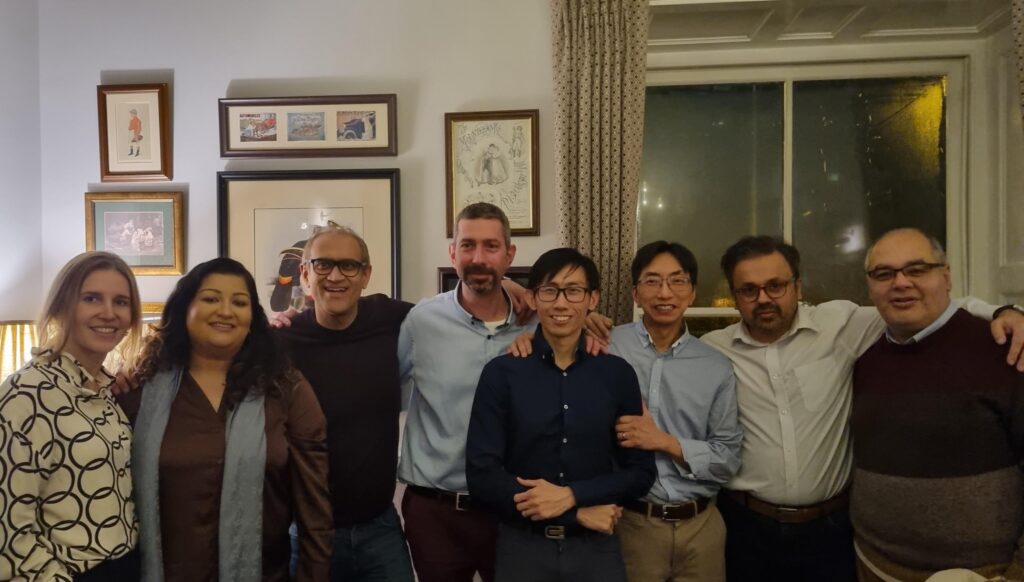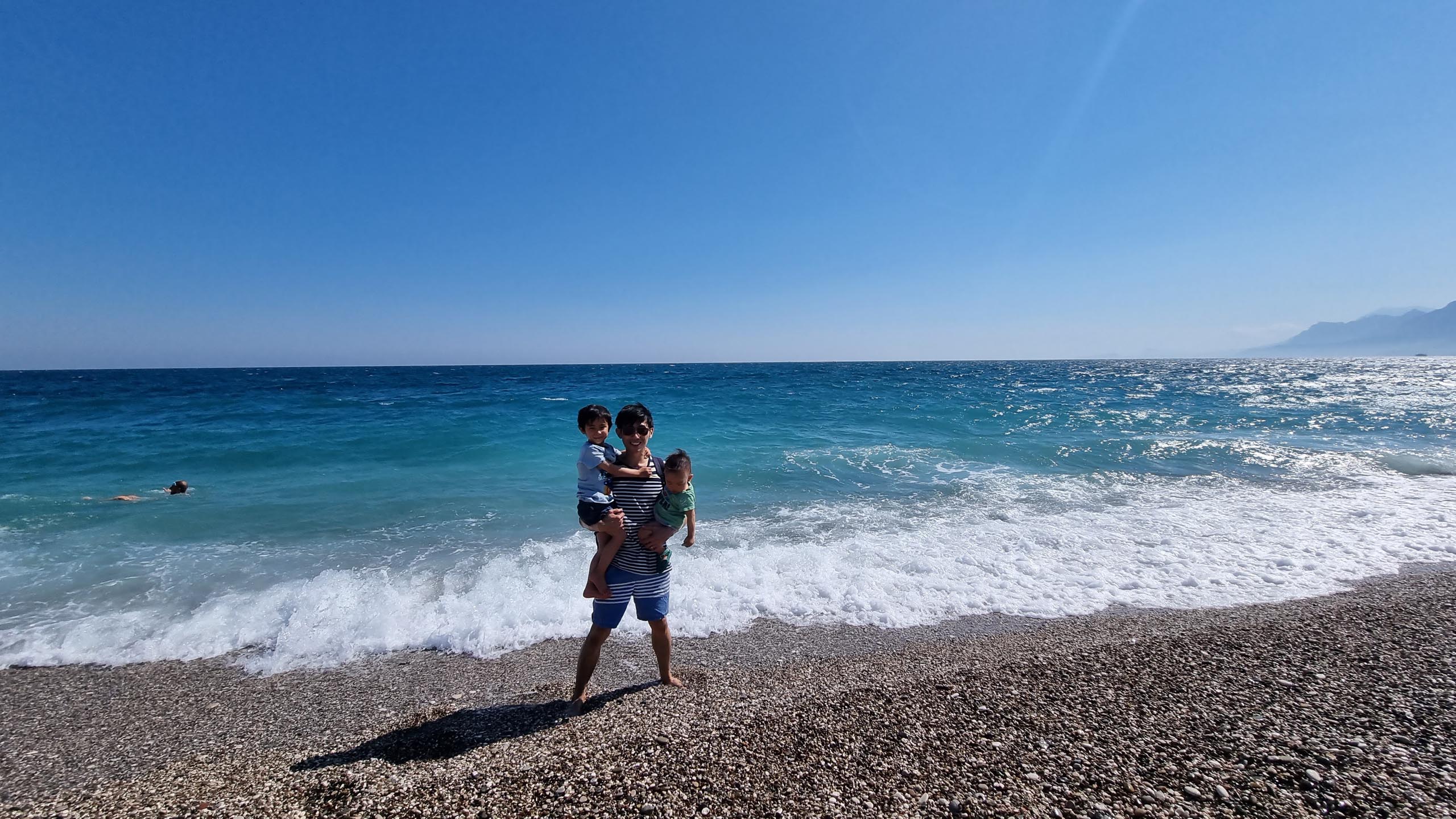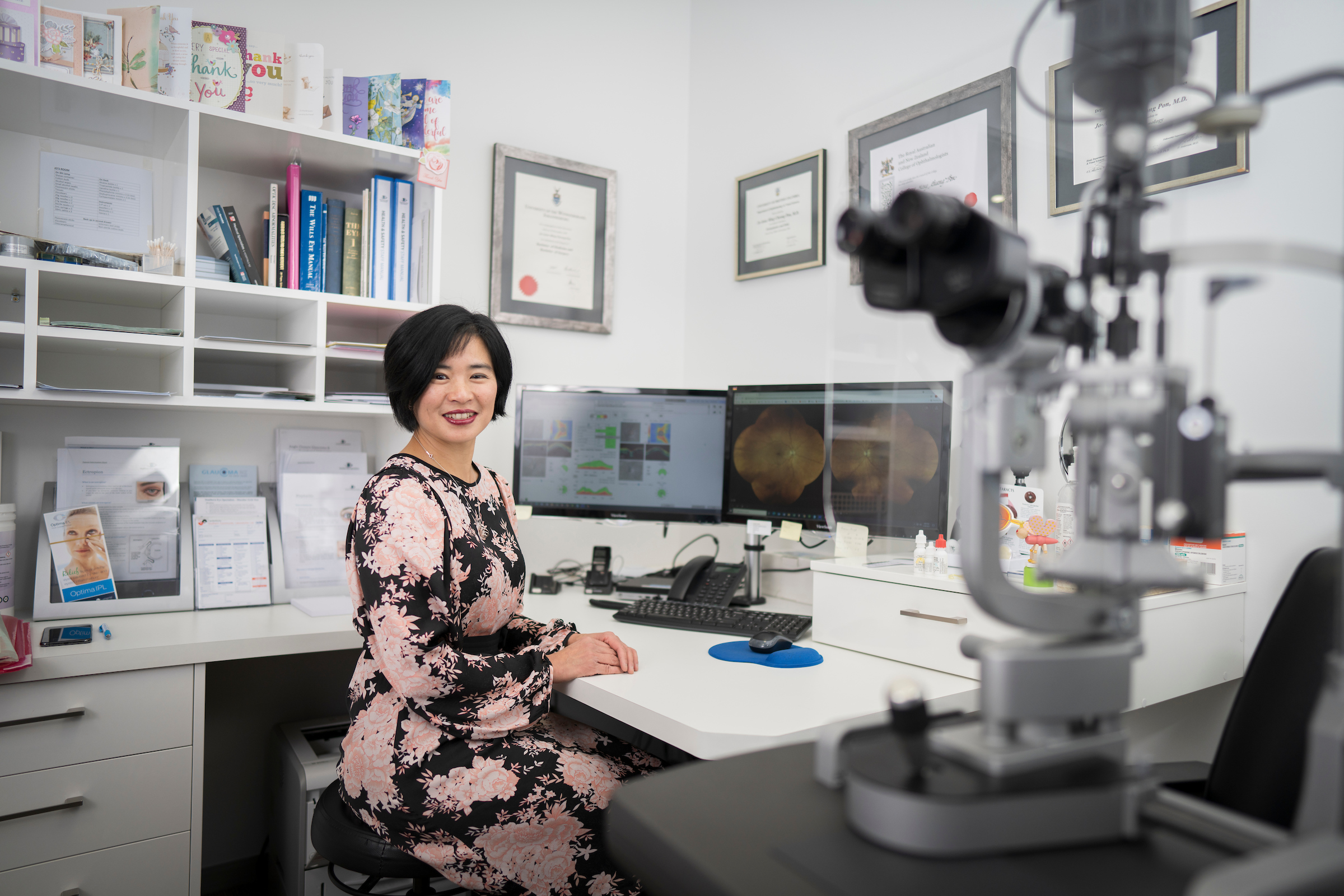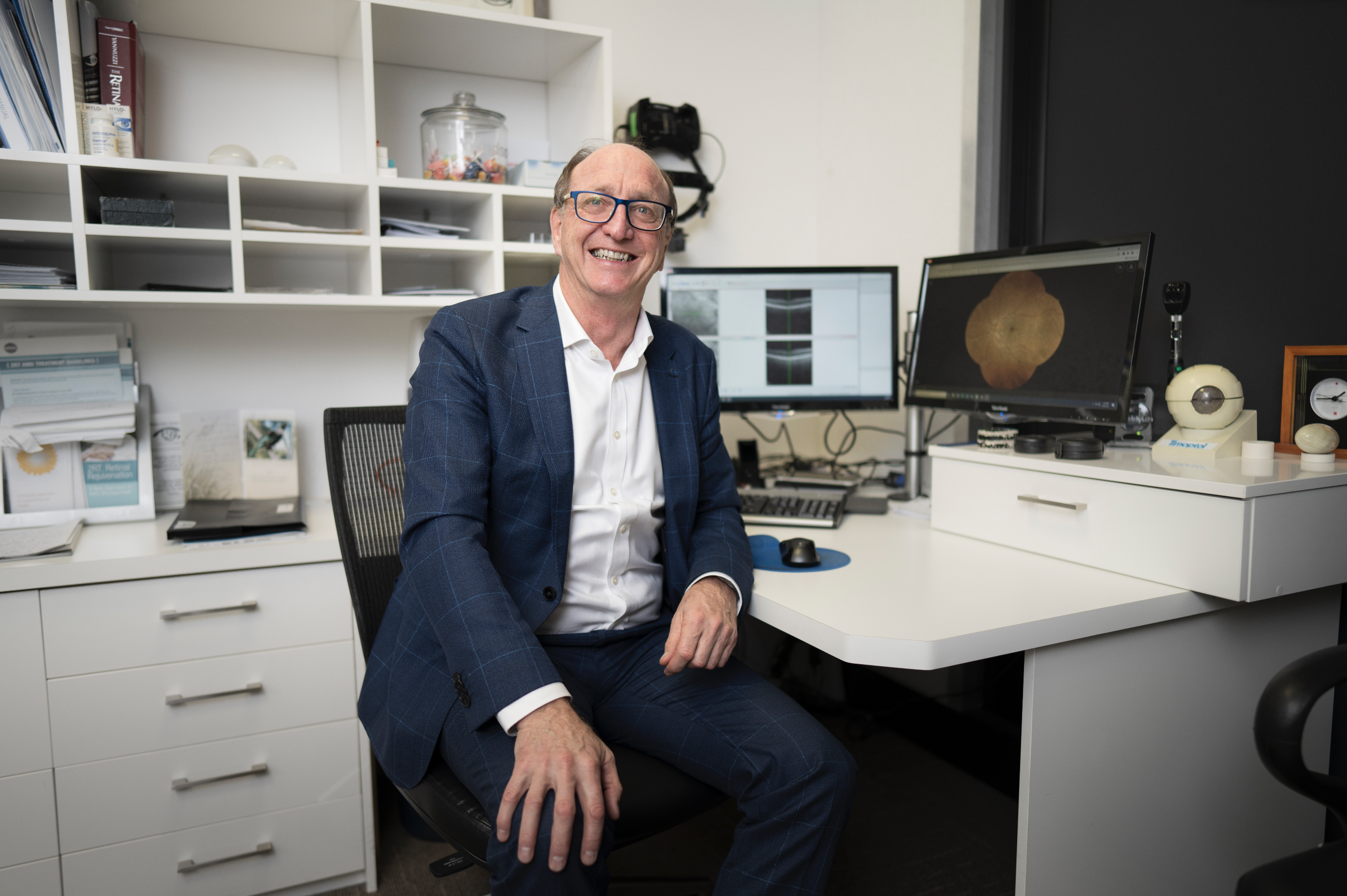Dr. Dickson Wong
Glaucoma, oculoplastics, cataract surgeon
MBChB, PGDipOphthBS, FRANZCO
Dr Dickson Wong joins Southern Eye Specialists as a highly trained and passionate ophthalmologist, with a subspeciality in Glaucoma and Oculoplastics, and a wealth of experience in complex cataract surgery.
After finishing his ophthalmology training in Christchurch, Dr Wong completed a two- year dual fellowship in Oculoplastics and Glaucoma at Wellington Regional Hospital. This was promptly followed by another full-year fellowship at Birmingham Midland Eye Centre (BMEC) in the UK, where he honed his skills undertaking Minimally Invasive Glaucoma Surgery (MIGS).
Currently, Dr Wong divides his work time between his work as a Consultant Ophthalmologist at Christchurch Public Hospital and his role at Southern Eye Specialists. His experience is bolstered by leadership and collegial roles which have seen him serve as chairperson of the RANZCO Trainee Representative Group, on the Executive Working Group review panel for the college’s training curriculum, and as a member of the General Council.
The point of view
Dr Dickson Wong travelled from New Zealand around the globe to enhance his skill and care capabilities. Then, with expertise and perspective honed, he arrived back in Christchurch ready to put this experience to good use. Now he’s at home here at Southern Eye, his patients benefiting from his relaxed manner and diligent mindset.
An inclination towards biology from a very young age paved the way to Dr Dickson Wong’s subsequent career in ophthalmology. While Dickson’s curiosity for the complexities and eccentricities of the human body caused his parents some consternation when he was a young boy, this childhood fascination soon presented itself as a calling of sorts.
“As a child I was always fascinated by human biology,” he says. “I used to bug my parents to bring me to Body Worlds exhibitions. The exhibits kind of freaked out my parents and siblings, but I just marveled at the intricacies of the human body.”
The interest continued into his high school biology classes, which was more botany- based than Dickson may have liked. Still, the science at the heart of the work stoked further inspiration for studying medicine. A medical career wasn’t a foregone conclusion, however.
“I really like the human interaction aspect of medical care. So, from early on I was like, oh, this is a perfect combination!”
“There’s a stereotype of pushy parents, but mine were anything but,” says Dickson. “While they were certainly supportive, they also knew the pressure that comes with it (a medical career).”
While the complexity of biological form and function attracted him to a career in medicine so too did the social nature of healthcare.
“I really like the human interaction aspect of medical care. Growing up I was often the one in our peer group who was trusted to provide emotional support when one friend or another was going through a rough patch. So, from early on I was like, oh, this (a medical career) is a perfect combination!”
After finishing his graduate degree and studying ophthalmology in multiple centers in New Zealand, including Christchurch, Dickson went on to a two-year dual fellowship in oculoplastics and glaucoma at Wellington Regional Hospital.
He then undertook another full-year glaucoma fellowship at Birmingham Midland Eye Centre (BMEC) in the UK, with an in-depth focus on Minimally Invasive Glaucoma Surgery (MIGS).
“It’s important that I work knowing their beliefs, their perceptions, their understanding of the disease they are facing.”

Moving across the world for work is always a challenge, particularly during the Covid disruptions, and especially with a young family. For Dickson, the invaluable skill and experience it delivered was worth it.
“MIGS provides so many more options for patients besides routine glaucoma surgeries, which are associated with higher risk. I believe that it is an important set of skills for a glaucoma surgeon and MIGS will continue to lead the way,” he says. “I wanted to go where there was that collection of knowledge for MIGS, where I could learn from some of the best. And that took me to Birmingham.”
The chance to improve and evolve his care approach was also important.
“Birmingham is a very big city and perhaps one of the most culturally diverse demographics in the UK,” he says. “So, you will see a lot of pathologies and disease spectrum across different ethnic groups. At the same time, I also developed a heightened sense of cultural awareness. Being able to connect with such a wide range of people is a skill worth having.”
Dickson draws on his diverse cultural background when engaging with patients. He points out that knowing their ethnic and cultures of patients can be helpful in determining the medical approaches which might be more acceptable to them. His ability to communicate in Cantonese, Mandarin and English is a valuable capability when it comes to building rapport, conveying concepts effectively, and optimising holistic patient care.
“I find that if I communicate with patients directly in the language they’re familiar with they are more likely to engage – so I am very fortunate that I am multilingual.”
Dickson sees building this rapport as essential to the quality of care on offer and fundamental to the efficacy of the treatment.
“I really want to know about my patient,” he says. “It’s important that I work knowing their beliefs, their perceptions, their understanding of the disease they are facing. In this way we can connect better at a higher level and work together on a plan.”
“In glaucoma, this connection is key to compliance and the success of the treatment. It’s very, very important. If you don’t engage with a patient well enough, then you can start to lose them right from the get-go – and they may not continue with their treatment.”
As well as being highly trained and experienced in glaucoma surgery, Dickson is also very passionate about oculoplastics and the role this work plays in helping restore confidence to patients.
“Removing a lesion or growth around the eye is easy. But restoring it to its natural anatomy and functionality is a challenge – and to do it as if nothing has occurred is simply amazing.”
Oculoplastics is what first drew Dickson to ophthalmology – and his meticulous nature always pushes him towards ensuring both aesthetic perfection besides ideal functionality.
“Christchurch is very special. It’s such a unique place for me, and one where I have so many good memories.
It’s work he’s looking forward to doing more of at Southern Eye, where he has quickly felt at home amongst the team.
“This group of consultants here are excellent people to work with. It’s not just that they’re knowledgeable – everyone is very supportive too. I think it’s pretty great to be part of a team like this. I’m confident this is a place where we grow old and wise together.”
He anticipates an exciting future as new technologies deliver enhanced results. However, so too must any emerging treatments and technologies be available to everyone.
“We know genetics a lot more nowadays and that means we are able to identify patients who are at risk and those who are more likely to respond to glaucoma treatment,” he says. “There is also talk about cell rejuvenation therapy in glaucoma – we are waiting for a massive breakthrough and hopefully we could see it in our lifetime. If it does arrive it will only be a good outcome if it’s accessible to everyone.”
For now, however, he remains focused on the present. After his time away, and with a young family to look after, Dickson is pleased to be settled again in the Garden City.
“Christchurch is very special,” he says. “It’s such a unique place for me, and one where I have so many good memories. This is where I met my wife. My first child was born here. And now we’ve created our home here. We feel like we are really connected to this city – so it’s very fortunate and exciting to be back.”

Life has certainly changed since the last time in Christchurch. A passionate foodie, and always keen to go on new culinary adventures, there are more important priorities now.
“With young children you can’t exactly sit through a meal peacefully and take your time to really savor the food. It’s generally chaos!”
“However, I wouldn’t swap my time with the boys for anything else,” he says. “They are growing so fast, and I just want to spend as much time as I can with them while they still need me.”
For Dickson and his wife, Geena, this does often mean juggling commitments between work and family lives. He states that homelife is always easier “when we work to our strengths.”

